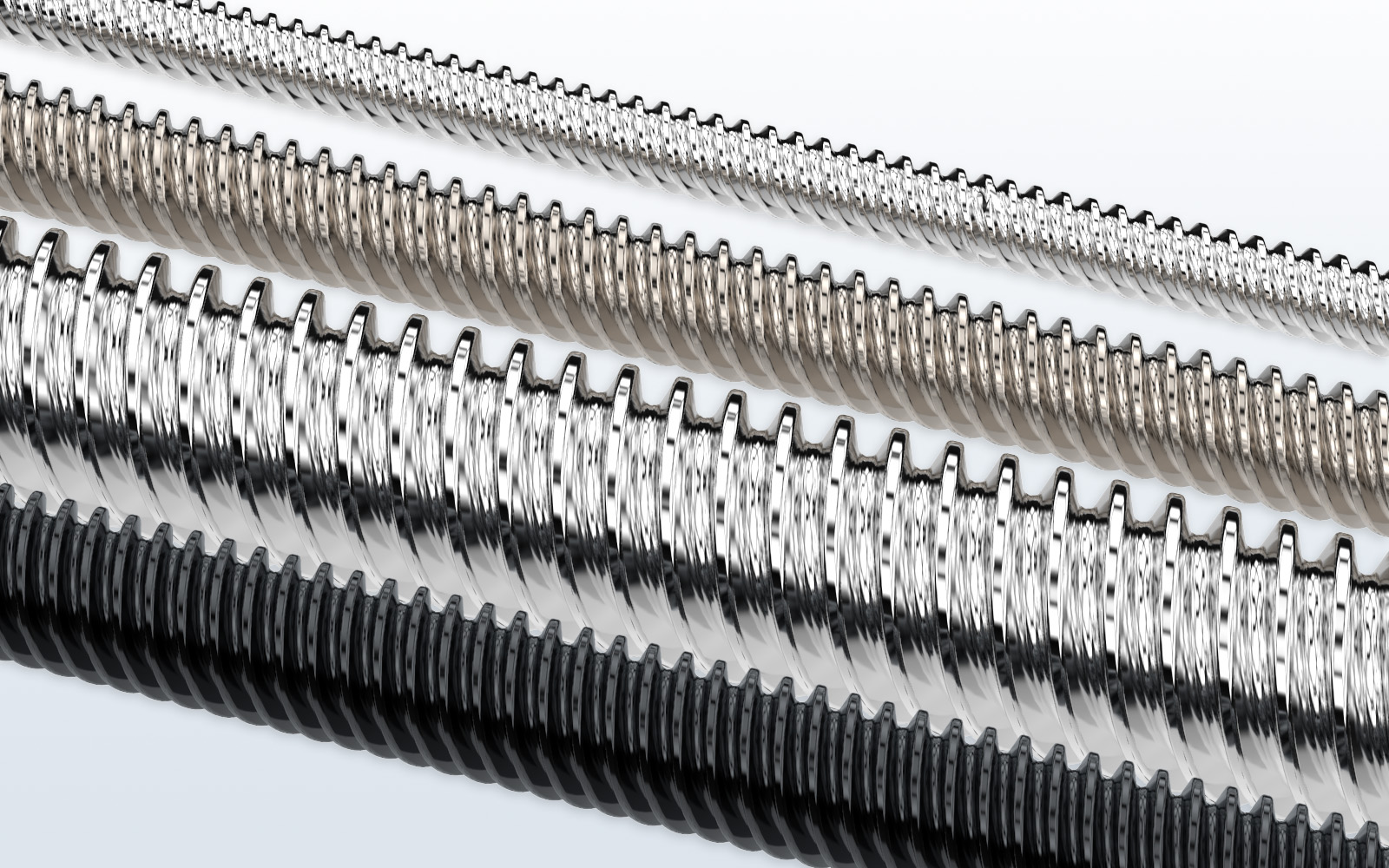Choosing the Right Lead Screw
Understanding the Differences between Rolled Thread and Ground Thread

Lead screws play a vital role in mechanical systems, converting rotary motion into linear motion. They are commonly used in various applications, including industrial machinery, automation systems, and 3D printers. When selecting a lead screw, one crucial consideration is the type of thread used. In this blog post, we will cover the key differences between rolled thread and ground thread lead screws, highlighting their advantages, disadvantages, and optimal applications.
What is a Lead Screw?
Before we delve into the details, let's briefly understand the fundamentals of a lead screw. A lead screw consists of a screw (male) and a nut (female) assembly, with helical grooves running along their surfaces. As the screw rotates, it causes the nut to move linearly along the screw's axis. The distance the nut advances in one revolution is known as the lead, which is the key parameter in lead screw selection.
Rolled Thread Lead Screws:
Rolled thread lead screws are manufactured through a cold-forming process. In this method, a blank screw is pressed between hardened steel dies under high pressure, which deforms the material to create the thread. The main advantages of rolled thread lead screws include:
- Cost-Effectiveness: Rolled thread lead screws are more economical to produce compared to ground thread lead screws, making them a popular choice for cost-sensitive applications.
- Improved Material Strength: The cold-forming process of rolled thread lead screws increases the hardness and strength of the thread, making them suitable for applications requiring higher load capacities.
- Fast Production: The manufacturing process for rolled thread lead screws is relatively fast, allowing for efficient mass production.
However, there are a few limitations to consider when using rolled thread lead screws:
- Limited Precision: Due to the nature of the cold-forming process, rolled thread lead screws have slightly less accuracy and precision compared to ground thread lead screws. This limitation makes them less suitable for applications that require high positional accuracy.
- Surface Finish: Rolled threads have a rougher surface finish compared to ground threads, which can lead to increased friction and higher wear rates. This aspect must be considered when selecting the appropriate lubrication and maintenance regimen.
Ground Thread Lead Screws:
Ground thread lead screws are manufactured by removing material through precision grinding. This process involves passing the screw through a grinding wheel to create the thread profile. Ground thread lead screws offer several advantages over their rolled thread counterparts:
- Enhanced Precision: The grinding process allows for extremely accurate and precise thread profiles, making ground thread lead screws the preferred choice for applications that demand high positional accuracy and repeatability.
- Superior Surface Finish: Ground threads exhibit a smoother surface finish, reducing friction and wear between the screw and nut. This characteristic enhances efficiency and extends the operational life of the lead screw.
- Tighter Tolerance Control: Ground thread lead screw threads can be manufactured to tighter tolerances, ensuring consistent and reliable performance in critical applications.
Despite their advantages, there are a few considerations when selecting ground thread lead screws:
- Higher Cost: The precision grinding process involved in manufacturing ground thread lead screws makes them more expensive compared to rolled thread lead screws. This factor should be well-thought-out when determining the feasibility of the project.
- Production Lead Time: The grinding process is relatively slower compared to cold-forming, which can result in longer lead times for production and delivery.
Optimal Applications:
Choosing between rolled thread and ground thread lead screws depends on the specific requirements of the application. Here are some general guidelines:
- Rolled Thread Lead Screws: These are suitable for applications that prioritize cost-effectiveness, moderate load capacities, and do not require high positional accuracy. Examples include consumer electronics, automotive assemblies, and simple positioning systems.
- Ground Thread Lead Screws: These are ideal for applications that demand high precision, tight tolerance control, and excellent surface finish. Examples include CNC machines, medical devices, scientific instruments, and aerospace systems.
Conclusion:
In summary, the choice between rolled thread and ground thread lead screws depends on the specific needs of your application. Rolled thread lead screws offer cost-effectiveness and improved material strength, while ground thread lead screws provide superior precision and surface finish. By understanding the advantages and limitations of each type, you can make an informed decision that aligns with your project requirements. Remember to consider factors such as cost, precision, load capacity, and lead time when selecting the optimal lead screw for your mechanical system.


